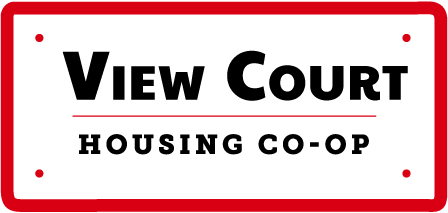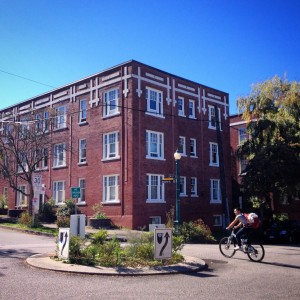There are many kinds of co-operatives: food co-ops, co-op daycares, credit unions, retail co-ops, worker co-ops and housing co-ops. Any group of people can form a co-operative. The members own the co-operative and the co-operative provides a service they need. Housing co-operatives provide housing.
Since the 1930s, Canadians have been building and living in housing co-ops. The people who live in the housing are the co-op’s members. They elect, from among themselves, a board of directors to manage the business of the co-op. Each member has one vote. Members work together to keep their housing well-managed and affordable. Over the years, federal and provincial governments have funded various programs to help Canadians create non-profit housing co-ops. The co-ops developed under these programs provide good quality, affordable housing. There are more than 255 non-profit housing co-ops comprising 14,300 units in British Columbia. As a co-op member, you have security of tenure. This means that you can live in your home for as long as you wish if you follow the rules of the co-op and pay your housing charge (rent). As a co-op member, you have a say in decisions that affect your home. You and your neighbours own your homes co-operatively. Members form a community that works together to manage the co-op. Co-op communities are made up of all kinds of people – people with different backgrounds and incomes and special needs. These diverse and vibrant communities are the unique strength of the co- op housing movement.
Living in a Housing Co-op
Being a co-op member means having control over your housing. It also means you have a responsibility to make sure that your co-op is a well-managed and pleasant place to live. If you join a co-op, you will be expected to do the following:
- Buy shares in the co-op
- Pay a monthly housing charge
- Attend committee meetings
- Participate in running the co-op
- join a committee or the board
- help with light maintenance during work parties
- organize social events
Before you apply to become a member, ask yourself if you will have the time and energy to participate in your co-op. The above guidelines are part of the co-operative principles which all co-operatives put into practice:
- open membership
- democratic member control
- economic participation
- independence
- co-operative education
- co-operation with other co-operatives
- community.
View Court participation
Survival of a co-op depends upon members participation in the running of the building. Co-op members are responsible for contributing in three ways:
- By becoming a member of a least one of the operating committees
- By carrying out assigned chores. Each member generally receives one chore to do every other month which is carried out for a month’s duration.
- By participating in periodic work parties around the Co-op.
Finance Committee
The Finance Committee is responsible for preparing an annual budget and presenting this to the general membership at the Budget General Meeting around March of each year.
Membership Committee
The Membership Committee is responsible for finding suitable new members for the co-op. This committee regularly advertises, interviews, and selects new members and maintains an ongoing waiting list for suites. It also coordinates suite switches among members and mediates in co-op related issues of grievances, which may arise between or among co-op members. As well, it also organizes social events.
Maintenance Committee
The Maintenance Committee is responsible for the general upkeep and repair of the building and the suites. Maintenance sometimes organizes work parties to carry out tasks, which arise in the course of up keeping the building and the grounds.
The Board of Directors
The Board of Directors is made up of representatives from each of the above operating committees. There are four executive positions on the Board itself: President, Vice-President, Secretary and Treasurer. All board members are elected at the Annual General Meeting by the general membership for a one-year term. The Board is legally responsible for the operation of the Co-op during its term of office. It receives recommendations from the various committees regarding new or revised co-op policy and makes policy recommendations to the general membership. The Board is the legally constituted governing body of the Co-op, but ultimate authority rests with the general membership who may dismiss any or all board members prior to the end of their term at a specially called general meeting. All Co-op members in good standing are eligible for election to the Board and there is no limit to the number of times a member can serve on the Board.

